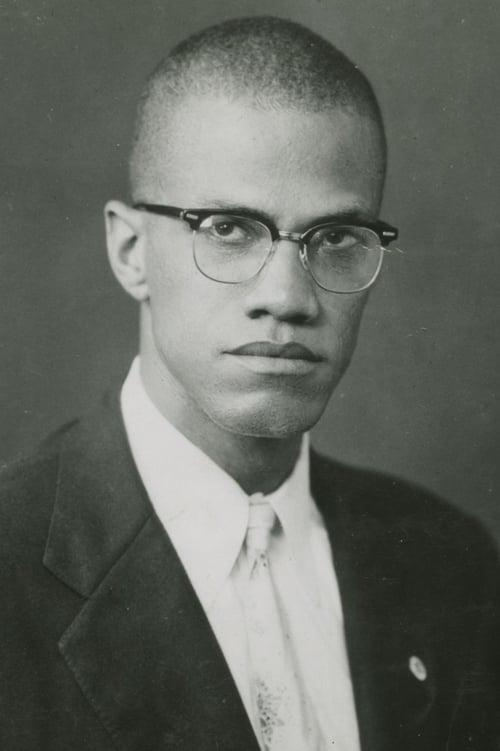
Malcolm X
Nascimento : 1925-05-19, Omaha, Nebraska, USA
Morte : 1965-02-21
História
Malcolm X ( May 19, 1925 – February 21, 1965), born Malcolm Little and also known as El-Hajj Malik El-Shabazz was an African-American Muslim minister, public speaker, and human rights activist.To his admirers, he was a courageous advocate for the rights of African Americans, a man who indicted white America in the harshest terms for its crimes against black Americans. His detractors accused him of preaching racism, black supremacy, antisemitism, and violence. He has been called one of the greatest and most influential African Americans in history, and in 1998, Time named The Autobiography of Malcolm X one of the ten most influential nonfiction books of the 20th century.
Malcolm X was born in Omaha, Nebraska. The events of his childhood, including his father's lessons concerning black pride and self-reliance, and his own experiences concerning race played a significant role in Malcolm X's adult life. By the time he was thirteen, his father had died and his mother had been committed to a mental hospital. After living in a series of foster homes, Malcolm X became involved in a number of criminal activities in Boston and New York City. In 1946, Malcolm X was sentenced to eight to ten years in prison.
While in prison, Malcolm X became a member of the Nation of Islam, and after his parole in 1952 he became one of the Nation's leaders and chief spokesmen. For nearly a dozen years he was the public face of the controversial group. Tension between Malcolm X and Elijah Muhammad, head of the Nation of Islam, led to Malcolm X's quitting the organization in March 1964. He subsequently traveled extensively throughout Africa and the Middle East and founded Muslim Mosque, Inc., a religious organization, and the secular Organization of Afro-American Unity, which advocated Pan-Africanism. Less than a year after he left the Nation of Islam, Malcolm X was assassinated by three members of the group while giving a speech in New York.
The beliefs expressed by Malcolm X changed during his lifetime. As a spokesman for the Nation of Islam he taught black supremacy and deified the leaders of the organization. He also advocated the separation of black and white Americans, which put him at odds with the civil rights movement, which was working towards integration. After he left the Nation of Islam in 1964, Malcolm X became a Sunni Muslim, made the pilgrimage to Mecca and disavowed racism, while remaining a champion of black self-determination, self defense, and human rights. He expressed a willingness to work with civil rights leaders and described his previous position with the Nation of Islam as that of a "zombie".
Description above from the Wikipedia article Malcolm X, licensed under CC-BY-SA, full list of contributors on Wikipedia.
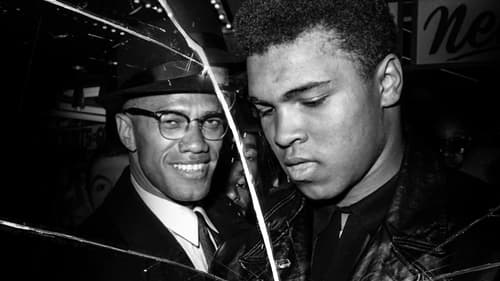
Self
A relação extraordinária entre Malcolm X e Muhammad Ali é abalada por sinais de desconfiança e pela tensão entre ideais distintos.

Self (archive footage)
Em 1969, no mesmo verão em que ocorreu Woodstock, outro festival musical foi organizado no Harlem, em Nova York, para celebrar a música norte-americana e a história afro-americana. As imagens do concerto Harlem Cultural Festival, filmadas há 50 anos e inéditas até hoje, capturam um empolgante momento cultural nos Estados Unidos, embora subestimado historicamente. Entrevistas com artistas que participaram do evento são intercaladas com as apresentações de, entre outros, Stevie Wonder, Mahalia Jackson e Mavis Staples, Sly & the Family Stone e Nina Simone.

Documentário sobre racismo estrutural, feito durante a pandemia.
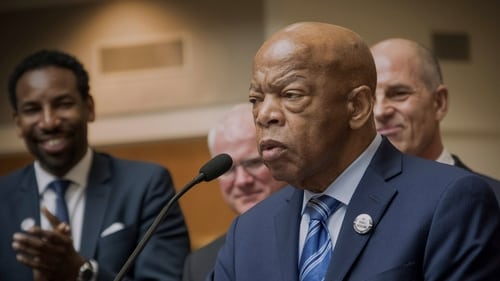
Self (archive footage)
The timely biopic focuses on John Lewis’ longstanding prominence as a civil rights champion and his continuing crusade for racial and social equality. The documentary illuminates the 80-year-old Congressman’s life as it chronicles the moments on the extraordinary journey that have shaped his place in history and make him such a galvanizing figure today as protests circle the globe. Lewis’ schedule has increased ten-fold as he has become the go-to figure for TV news shows, podcasts and newspapers and magazines from the Washington Post to Vanity Fair, commenting on and leading the way forward through today’s worldwide protests and demonstrations.

Self (archive footage) (uncredited)
Spike Lee conta a história de quatro veteranos de guerra afro-americanos que voltam ao Vietnã à procura dos restos mortais de seu comandante e de um tesouro enterrado.

Self (archive footage)
Por mais de meio século, o temido jornalista do 60 Minutes, Mike Wallace, enfrentou as figuras mais influentes do mundo. Apoiando-se exclusivamente em filmagens de arquivo, o filme interroga o interrogador, acompanhando a célebre carreira de Mike e a vida pessoal conturbada enquanto descompacta como o jornalismo de radiodifusão evoluiu para o precário ponto de inflexão de hoje.
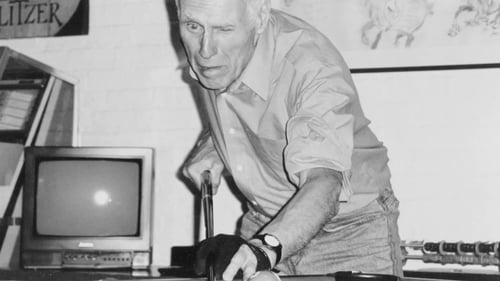
Himself (archival footage)
What makes a rebel? This 78 minute documentary probes the psyche of bad-boy publisher and free speech warrior Barney Rosset, whose mid-century legal and cultural battles smashed sexual and political taboos in the United States — unleashing the counter-culture of the 1960s and introducing millions of young intellectuals to the most radical currents in literature, film, theater and politics. In his late eighties, coming to terms with his life, Barney Rosset began to obsessively sculpt an autobiographical 15′ x 22′ surreal wall mural, embedded with jewel-like vignettes crafted out of found objects, each a clue to the conflicts and obsessions that drove Barney’s lifetime rebellion against authority. A cast of artists, a neurologist, and a shaman connect the clues and piece together Barney’s life.
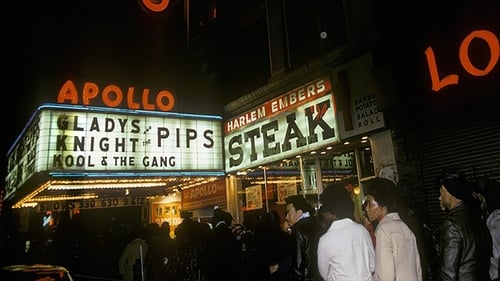
Self (archive footage)
O filme conta a história única do marco da cidade de Nova York que se tornou um sagrado salão de excelência e empoderamento afro-americano.

Self (archive footage)
One was a Black human rights leader who had achieved global notoriety. The other was a young Marxist Oxford student from Pakistan looking to bring radical change to the British establishment. When they met in December 1964, Malcolm X's life of activism was about to come to a tragic end, but Tariq Ali's journey was just beginning. This is the story of a brief but impactful friendship that, 50 years later, still ripples through England today, told by Ali, civil rights historians, and rarely seen footage of Malcolm X's overseas visit.
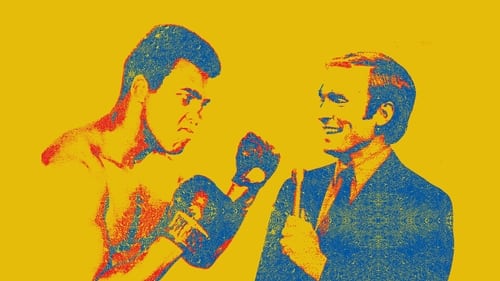
Self (archive footage)
A coragem e o inegável carisma da lenda do boxe Muhammad Ali e a amizade improvável que se formou ao longo dos anos entre o campeão e o apresentador de televisão pioneiro Dick Cavett.
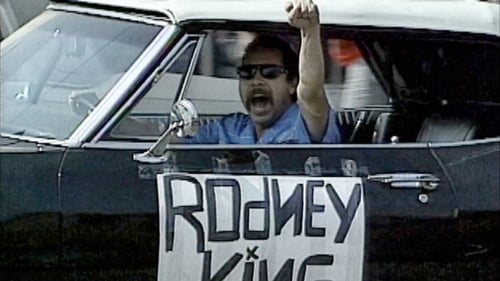
Himself (Archival Footage)
An in-depth and provocative look at the 1992 Los Angeles riots exploring the roots of civil unrest in California and the relationship between African Americans and LAPD.
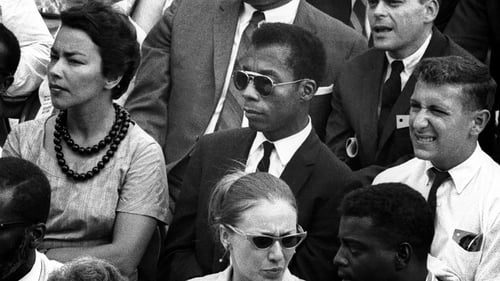
Self (archive footage)
Baseado no livro de James Baldwin, o filme compara as propostas dos líderes ativistas Medgar Evers, Malcolm X e Martin Luther King com questões raciais contemporâneas.

Self (archive footage)
Estudiosos, ativistas e políticos analisam a correlação entre a criminalização da população negra dos EUA e o boom do sistema carcerário do país.

Himself (voice) (uncredited)
Um álbum visual da cantora Beyoncé, baseado na jornada de todas as mulheres em busca de autoconhecimento e cura.
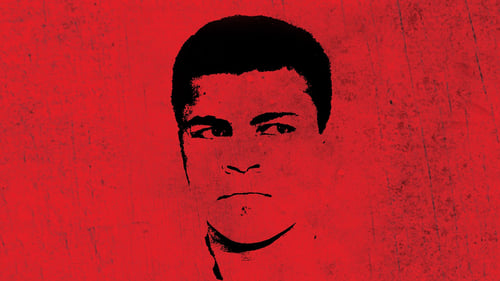
Brash boxer Cassius Clay burst into the American consciousness in the early 1960s, just ahead of the Civil Rights movement. His transformation into the spiritually enlightened heavyweight champion Muhammad Ali is legendary, but this religious awakening also led to a bitter legal battle with the U.S. government after he refused to serve in the Vietnam War. This film reveals the perfect storm of race, religion and politics that shaped one of the most recognizable figures in sports history.

Himself (archive footage)
King: Man of Peace in a Time of War documents the work Martin Luther King did in attempting to bring peace to people during the turmoil of the Vietnam War and the Civil Rights Movement. The film includes interviews with contemporaries such as Jesse Jackson, and military experts like Colin Powell.

A Huey P. Newton Story is a 2001 film directed by Spike Lee. It is a filmed performance of Roger Guenveur Smith's one-man show of the same name. Smith sits in a chair on a stage and tells about the past, mostly dealing with Huey P. Newton's life and times.

Himself
The Autobiography of Malcolm X is an account of the life of Malcolm X, born Malcolm Little in 1925, who became a human rights activist. Malcolm X was assassinated in New York's Audubon Ballroom in February 1965.

Self (archive footage)
Muhammad Ali. He is known as the most thrilling athlete of all time... he is known as The Greatest. The remarkable story of how he became one of the most loved, hated, intriguing, and controversial figures in American history is brought to life in the 6-hour series, Muhammad Ali: The Whole Story. Episode 1: Olympic Gold. Episode 2: The Youngest Heavyweight Champion. Episode. 3: Exile. Episode 4: The Road Back. Episode 5: The Rumble In The Jungle Episode. 6: The Thrilla In Manila.

Self (archive footage)
Using government documents, archive footage and direct interviews with activists and former FBI/CIA officers, All Power to the People documents the history of race relations and the Civil Rights Movement in the United States during the 1960s and 70s. Covering the history of slavery, civil-rights activists, political assassinations and exploring the methods used to divide and destroy key figures of movements by government forces, the film then contrasts into Reagan-Era events, privacy threats from new technologies and the failure of the “War on Drugs”, forming a comprehensive view of the goals, aspirations and ultimate demise of the Civil Rights Movement…

Self (archive footage) (uncredited)
Uma homenagem ao controverso ativista negro e líder da luta pela liberação negra. Ele chegou ao fundo do poço durante seu encarceramento nos anos 50, tornou-se um muçulmano negro e, mais tarde, líder da Nação do Islã. Seu assassinato em 1965 deixou um legado de autodeterminação e orgulho racial.

Book
Uma homenagem ao controverso ativista negro e líder da luta pela liberação negra. Ele chegou ao fundo do poço durante seu encarceramento nos anos 50, tornou-se um muçulmano negro e, mais tarde, líder da Nação do Islã. Seu assassinato em 1965 deixou um legado de autodeterminação e orgulho racial.

(uncredited)
DEATH SCENES II continues the exploration into the dark recesses of violence and rage that ended in such heinous crimes as the Manson Family's assault on society. You'll see the gruesome aftermath of mob reprisals, public executions and international terrorism. DEATH SCENES II uniquely ushers the brave and curious into a spellbinding trip through the reality that is our world today.

Self
This special three-part presentation of "Like It Is" examines the history of the black civil rights movement in the United States, emphasizing the role of black leaders and activists. Including the defected FBi-agent "Othello" Darthard Perry tells it all.

A brief introduction to two revolutionary leaders, both born on May 19th.

Self (archive footage)
James Earl Jones narrates this fascinating and moving documentary about the life of the assassinated black leader through various sources.

Book
James Earl Jones narrates this fascinating and moving documentary about the life of the assassinated black leader through various sources.

Himself
The study of crazy brilliance and flamboyant sincerity. a.k.a. Cassius Clay presents a fascinating look at the incredible life and achievements of one of the most courageous, outspoken and charismatic figures of boxing: Muhammad Ali. Born Cassius Clay in 1942, Ali soon rose to become a renowned athlete, an articulate author and a compelling political; leader. Audacious, ambitious and totally fearless, Ali became a symbol of pride, a legend of hope and one of the most extraordinary cultural icons of the 20th century.
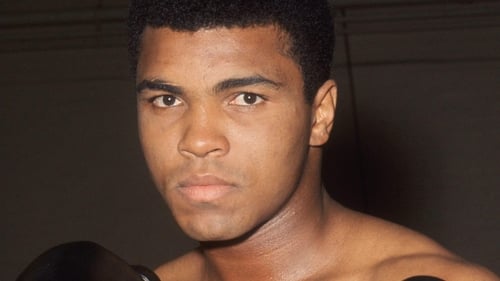
Himself
Universally accepted as a true icon of the 20th century, Muhammad Ali’s phenomenal achievements spanned sport, politics and religion. One man – photographer William Klein had comprehensive access to the events that shaped Ali’s legend. In 1964, the young gregarious Cassius Clay successfully defeated the seemingly invincible Heavyweight Champion of the World Sonny Liston – the manner of Clay’s victory and his amazing persona made him an instant superstar. Through this incredible period, and Clay’s subsequent rematches with Liston, William Klein enjoyed unrivalled access top Clay’s camp – witnessing at first hand Cassius Clay becoming Muhammad Ali and angering the American people with his allegiance to Islam. Forward to Zaire 1974, and the return of Muhammad Ali to the world stage to face another invincible champion George Foreman. As Ali reclaimed the crown for a second time, Klein was ever present, capturing the full story at close quarter.

Himself
Produced in collaboration with Malcolm X and narrated by Ossie Davis, this call to arms layers revolutionary text from multiple sources with gritty, shot-on-the-streets-of-New York footage of African-American struggle. A forgotten masterpiece from radical filmmaker, theorist and founder of Cinéma Éngagé, Édouard de Laurot.

Self
Nominated for Emmy for "Program of the Year." First look at the lives of Negros on American television - in their own word. Produced/Directed by Nicholas Webster, co-written by Webster an Louis Lomax.

Himself
A television documentary about Black Nationalism in America, focusing on the Nation of Islam and, to a lesser extent, the United African Nationalist Movement.


















